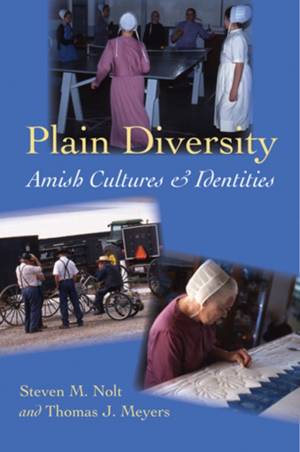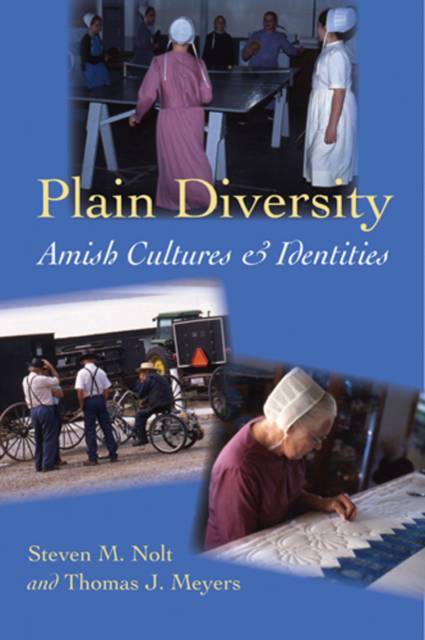
- Retrait gratuit dans votre magasin Club
- 7.000.000 titres dans notre catalogue
- Payer en toute sécurité
- Toujours un magasin près de chez vous
- Retrait gratuit dans votre magasin Club
- 7.000.000 titres dans notre catalogue
- Payer en toute sécurité
- Toujours un magasin près de chez vous
Description
Plain and simple. American popular culture has embraced a singular image of Amish culture that is immune to the complexities of the modern world: one-room school houses, horses and buggies, sound and simple morals, and unfaltering faith. But these stereotypes dangerously oversimplify a rich and diverse culture.
In fact, contemporary Amish settlements represent a mosaic of practice and conviction. In the first book to describe the complexity of Amish cultural identity, Steven M. Nolt and Thomas J. Meyers explore the interaction of migration history, church discipline, and ethnicity in the community life of nineteen Amish settlements in Indiana. Their extensive field research reveals the factors that influence the distinct and differing Amish identities found in each settlement and how those factors relate to the broad spectrum of Amish settlements throughout North America.
Nolt and Meyers find Amish children who attend public schools, Amish household heads who work at luxury mobile home factories, and Amish women who prefer a Wal-Mart shopping cart to a quilting frame. Challenging the plain and simple view of Amish identity, this study raises the intriguing question of how such a diverse people successfully share a common identity in the absence of uniformity.
Spécifications
Parties prenantes
- Auteur(s) :
- Editeur:
Contenu
- Nombre de pages :
- 256
- Langue:
- Anglais
- Collection :
Caractéristiques
- EAN:
- 9780801886058
- Date de parution :
- 01-06-07
- Format:
- Livre relié
- Format numérique:
- Genaaid
- Dimensions :
- 163 mm x 234 mm
- Poids :
- 508 g







